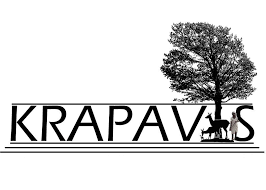Cause Area
Primary Sectors
Geographies Served
Programs
-
Pastoralism and livestock development
District
Alwar
States
Rajasthan
KRAPAVIS facilitates community-driven conservation of forest ecosystems to ensure sustainable pastoralism. It employs a 'Documentation-Coalition-Lobbying' approach to advocate for pastoralists' rights and raise awareness about forest rights Acts. The organization promotes ethno-veterinary practices and builds community capacities for fodder cultivation through methods such as silvi-pasture and agro-forestry models, planting fodder-fruit trees, and implementing fodder conservation practices. KRAPAVIS encourages livestock breed improvement via selective breeding of indigenous germ plasm and introduces better breeds like the Murrah buffalo. The organization provides medical aid, vaccinations, and infertility care for animals. It organizes herders' meetings, orientation camps, competitions, and training sessions. KRAPAVIS also conducts a month-long residential training course annually to cultivate a new cadre of Animal Health Workers (AHWs) from remote villages.
-
Agriculture and ecological sustainability
District
Alwar
States
Rajasthan
The focus is on sustainable farming and low external input agriculture, encompassing practices like composting, vermin-compost, local traditional seeds, mixed cropping, and bio-pesticides. The organization identifies and supports farmers overcoming modern seed and chemical input issues by reviving traditional seeds and systems. It assists communities in selecting high-fodder, reasonable-yield, and water-efficient varieties. Seed sharing is facilitated, and traditional millet-based cropping models are piloted. Seed banks are established, and crop demonstrations/trials are conducted from these banks. Capacity building occurs through workshops, exposure visits, and knowledge exchange among farmers and communities. The initiative aids farmers in constructing small check dams, field bunding, trenching, and levelling. Millet revival and cultural reconnection efforts form part of the 'MINOR' network in Rajasthan, also linked to the Indian 'MINI' network.
-
Rural development and vocational skills building (mahila aajivika)
District
Alwar
States
Rajasthan
KRAPAVIS offers a 4-month vocational training program called Mahila Ajivika, targeting 60 women annually. It comprises two 20-woman batches at the training center and a satellite center in a remote village. The training covers tailoring, embroidery, beauty parlour management, and beautician skills. The aim is to enhance women's skills, generate job opportunities, and contribute to national development. The training combines classroom and practical learning, supported by developed teaching materials. Upon completion, women establish tailoring shops or get placed in existing ones for income generation. KRAPAVIS provides post-training support, helping them set up units, access resources, and become self-reliant.
-
Orans and biodiversity conservation
District
Alwar
States
Rajasthan
KRAPAVIS is deeply involved in the revival of Orans, both in terms of their physical state and the conceptual understanding of these ecological areas, with active community engagement. The organization employs GIS mapping and ODK surveys to assess Orans, contributes to the construction and repair of water harvesting structures, and establishes tree nurseries for plantations on Orans and common lands. It also focuses on building the capacity of community members, particularly women, for effective Oran management and maintenance. KRAPAVIS assists in the development of contextually relevant regulations and enforcement systems, aiming to link with village-level institutions (PRIs) and promoting women's participation. The organization identifies and empowers key motivators within villages to act as resource persons for Oran management beyond their own areas. Advocacy efforts encompass government recognition through newsletters, training programs, workshops, and networking with other relevan
Leadership Team
-
Rajesh Kumar Dhawan
President
-
Ashok Kumar Singh
Vice President
-
Pratibha Sisodia
Secretary
-
Gopal Singh
Treasurer
Demographics & Structure
-
Organisation Strength
None
Registration Details
-
PAN Card
AAATK1402E
-
Registration Number
34/ Alwar – 92-93
-
CSR Form 1
Not Available
-
80G
AAATK1402EF20214
-
12A
AAATK1402EE20214
-
FCRA
125420009
About
-
Headquarters
Alwar, Rajasthan
-
Since
1992
Impact
KRAPAVIS has succeeded in conserving biodiversity and protecting rural livelihoods in hundreds of villages in eastern Rajasthan, supporting communities to restore water harvesting structures, recharge wells, and plant half a million trees of local species in Orans.
Vision and Mission
The mission of KRAPAVIS is to improve ecological, agricultural, and livestock practices to ensure sustainable livelihoods for rural pastoral communities, with a particular emphasis on Orans conservation and Common Property Resources management.
Political & Religious Declarations
-
Political Affiliation
-
Religious Affiliation
Location
-
Offices in Cities
Alwar
Other Details
-
Type
Non-profit
-
Sub Type
Society
Technology Adoption
-
SOC 2 Compliant
No
-
Financial Management
-
Beneficiary Management

